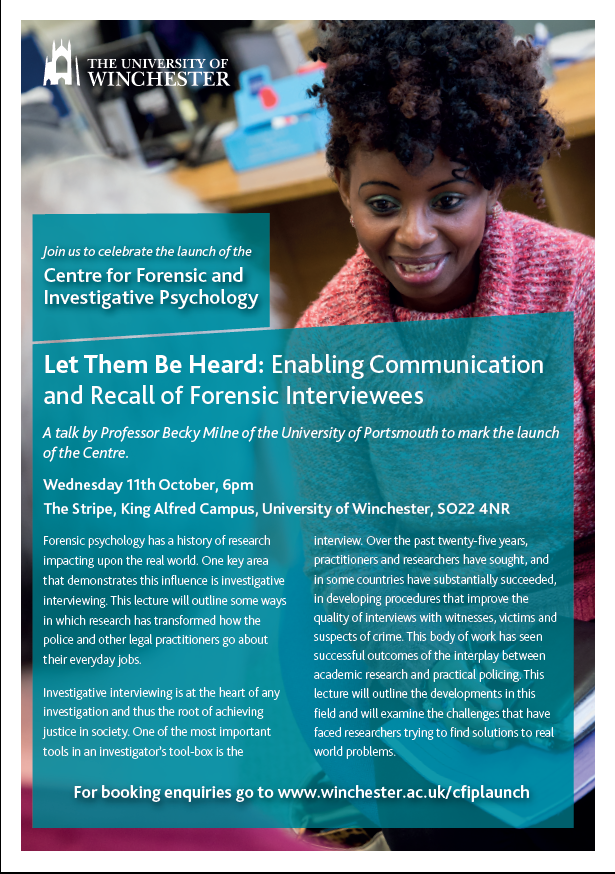International Survey on Interviewing Uncooperative Eyewitnesses
*** CALL FOR POLICE RESEARCH PARTICIPANTS ***
Some witnesses are uncooperative during the investigative interviews making it difficult for law enforcement agencies to gather complete and accurate information. Uncooperative witnesses are unwilling to be involved in the criminal investigation and refuse to provide valid information to aid the case. Nonetheless, there are ways in which interviewers try to overcome witness reluctance. We would like to learn about your interviewing experience with uncooperative witnesses, and what your perceptions are as an interviewer regarding lack of cooperation.
Could you please help us with our research? Your interviewing experience and expertise can help us understand better how you overcome the challenges of interviewing reluctant witnesses.
All police officers who conduct witness interviews in criminal investigations can take part in this research. You can take part in the survey by clicking on the following link:
https://maastrichtuniversity.
The study is a short online questionnaire, so it can be easily distributed to any of your colleagues willing to take the survey. Just forward the link above.
This is a project financed by The House of Legal Psychology, with researchers from Maastricht University (the Netherlands), Gothenburg University (Sweden), and University of Portsmouth (United Kingdom). We received approval from the standing ethical committee of Maastricht University.
If you have any questions or would like more information about this research, you may contact the research team.
Thank you very much for your time and contribution!
Alejandra De La Fuente Vilar
a.delafuentevilar@
Dr. Robert Horselenberg


